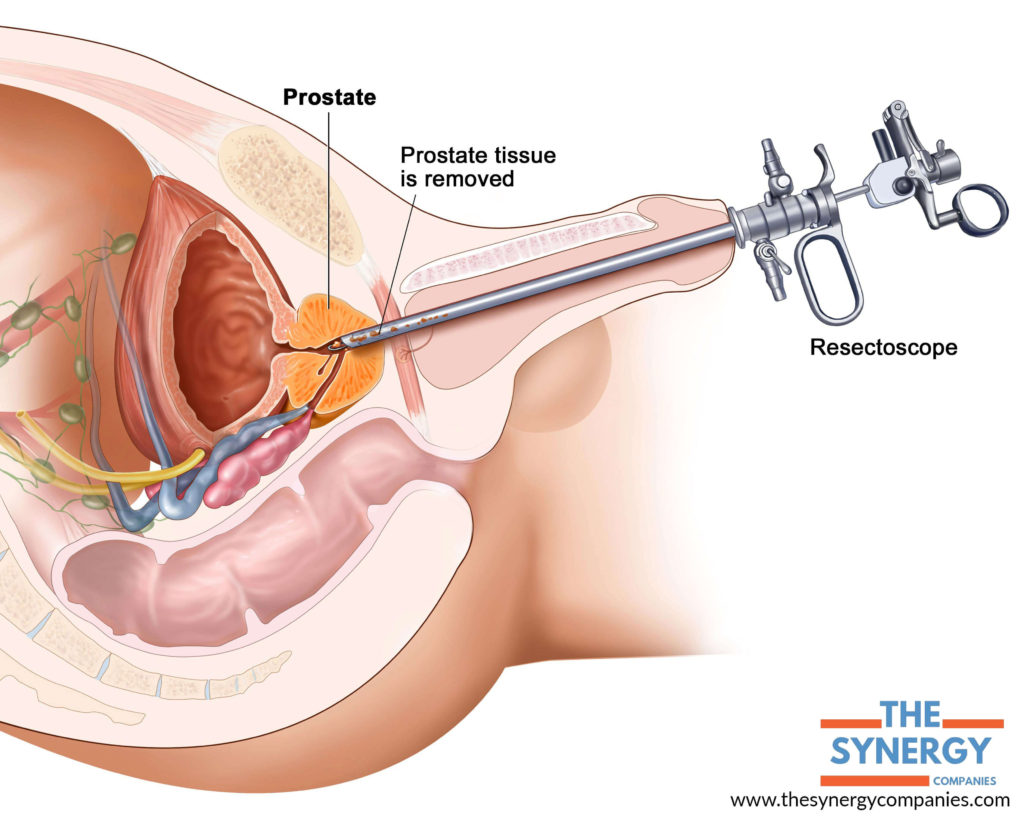No products in the cart.
Health & Lifestyle
How Long after Prostate Surgery does Impotence Last?
Prostate surgery also known as prostatectomy surgery is a type of surgery used for treating prostate cancer. It involves the removal of the prostate gland and its surrounding structures. However, it may have some post-treatment side effects which includes erectile dysfunction (ED) or impotence as well.
But, how does it happen? Is it temporary? Can it be treated? You may have several questions going around in your mind. Do not worry, we have got you the answers.
This article will have a decent discussion on erectile dysfunction after prostate or prostatectomy surgery, how long it could last and what treatments options you have available to consider.
So, shall we begin?
Table of Contents
Erectile dysfunction after prostate surgery

Prostate surgery has a risk to develop erectile dysfunction post-treatment. Because prostate surgery involves the removal prostate which has two tiny cavernous nerves that flow blood to penis to cause a healthy erection. And, if the prostate cancer has spread ahead of it or are too close, the doctor may remove one or both of those cavernous nerves to treat the cancer.
This, as a result, makes a man impotent post-treatment. Sometimes, even if they cavernous nerves are not removed, a person may experience impotency as the nerves may get damaged during the surgery.
How long does erectile dysfunction last after prostate surgery?

Erectile dysfunction or male impotence may be common just after you have had a prostate surgery and you may take some time to recover your sexual function completely. It may take months to years depending on the recovery rate of your body. However, there are some palliative treatment options that might support your erection.
The best is to consult with a doctor before you are planning to get prostate surgery upon prostate cancer diagnosis. Always ask your doctor certain questions to be sure whether you may experience erection issues and how you could manage it till it eventually improve.
Ask whether your cavernous nerves will be removed, whether the surgery may increase risk of ED, and also explore treatment options that could help you with it. Moreover, it is also important to discuss if you have had any chronic condition such as diabetes or had sexual issues already. Because these pre-developed conditions increase the changes of erectile dysfunction after prostate surgery.
Treatments for erectile dysfunction after prostate surgery

Since erectile dysfunction is a common condition after prostatectomy/prostate surgery, the best is to discuss with doctor about the available treatment options that could help. However, if the prostate surgery did not involve cavernous nerves removal, you may regain your natural sexual function within 2 years. Or, if cavernous nerves were removed, doctor suggested treatments might help.
Some common treatment options for erectile dysfunction (ED) or impotence after prostatectomy surgery include:
Mediational treatments
The damaged cavernous nerves may contact and affect blood circulation penis upon sexual stimulation, eventually causing a soft or dying erection. But, there are some medications approved by the Food and Drug Administration (FDA), proven to improve erections. These medicines help work by dilating the blood vessels and making blood flow more frequently and in an adequate amount to drive healthy erections. These medicines include:
- Viagra (sildenafil): The first approved medication to treat male impotence. It belongs to a group of medicines called phosphodiesterase type-5 (PDE-5) inhibitors that help one get and keep an erection causing arterial dilation i.e. increasing blood flow to penis and causing a healthy erection.
- Cialis (tadalafil): Containing tadalafil, Cialis also belongs to PDE-5 inhibitors medicines and can be taken as an alternative medicine to Viagra or its equivalents. Comparatively, the medicine lasts longer than any ED medication: around 36 hours in one dose.
- Levitra (vardenafil): Known for its effectiveness, Levitra is another PDE-5i drug that is used to treat higher degree of male impotence cases.
- Stendra (avanafil): It is a second generation first-line oral medication recently introduced as a treatment of impotence/ED.
Injection
Similarly as the mediational options, penile injection can also help improve erection by dilating the blood vessels and regulating blood flow to penis on stimulation. Though the FDA approved ED medications can be taken orally. Penile injection has to be injected directly to the shaft of penis to make the arterial dilation occur. Well, the injection contains a medicine called Alprostadil, also approved by FDA for erectile dysfunction/impotence treatment.
Vacuum device
Developed and introduced in early 1800s when there were no oral medications approved or to be tested as an impotence treatment. Vacuum device also known as an enhancement pump is a type of device which helps get an erection by creating pressure. The pump is placed around the penis and the pump sucks in blood to develop a healthy erection.
Implants
The medications, injection, vacuum device and any first-line treatment can help while the penile is not damaged– like, these options may help if you have not got your cavernous nerves removed during prostate surgery. But if they are removed, the first-line options will not help. In such a case, penile implants and transplants are the only options that might help. Penile implants involve the implant of an inflatable or a malleable rod in the penis to support the erection.
Pelvic exercises
Pelvic floor exercises are known to improve urine control and tighten the bladders to improve one’s sexual function. Also, pelvic floor exercises are known to increase testosterone release in men. These exercises, by fitting in the lifestyle can be practiced regularly. Though there are other options for the treatment of erectile dysfunction after prostatectomy surgery which includes medications, implants, injection and more, pelvic floor exercises could support the function from its end.
Well, in most cases, impotence after prostate surgery can be treated or it may also improve within 1-2 years on its own. But if the prostate has been removed, the man may get his normal erectile function back and can also experience sexual pleasure; but cannot ejaculation semen.
Understanding the emotional aspect

Emotional aspect also has a lot to do with one’s sexual health. Going through prostate and getting a surgical treatment for it is a tremendous event. You may take time to get used to and accept that your sexual function will take a while to get normal.
Well, if you feel like it is all in your mind, seeking a professional’s help will help. A professional sexologist or psychotherapist may help you cope up the emotional scenario you have made about your sexual health. Because impotence may affect your sexual relationship with your partner, it is important to cut down the emotional stress by discussing the condition and getting sessions that may help.
Moreover, emotional conditions including stress, depression, performance anxiety, low self-esteem and guilt are found to adverse male sexual function as it lowers male sexual libido. While sexual arousal requires a man to be sexually desired, low libido may eventually impact the erection/cause impotence.
Conclusion
It is common to experience impotence/erectile dysfunction after prostate surgery as the prostate removal may damage the cavernous nerves that flows blood to penis on sexual stimulation to cause erection. Usually, one can regain his erectile potency in around 1-2 years, and if the cavernous nerves are removed due to the cancer being too close to it, one may also lose his ability to erect. But, there are several approved ED treatments that might help out.
Hope you liked this post! Do share and comment your views down below.

